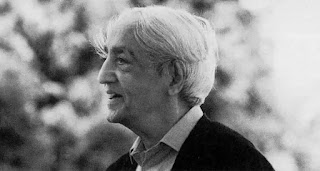നേതി നേതികളുടെ വിരുന്ന് - 6
ഈ സീരീസിലെ അഞ്ചാം ഭാഗം പുറത്തുവന്നിട്ടിപ്പോൾ ആറു മാസമായിരിക്കുന്നു. കുറച്ചു തിരക്കുകൾ കാരണം വൈകിയെന്നു പറയുന്നത് നുണയാവും. സത്യസന്ധമായി പറഞ്ഞാൽ, എങ്ങനെ അവസാനിപ്പിക്കണമെന്ന് നിശ്ചയമില്ലാത്തതിനാൽ അങ്ങനെയങ്ങനെ നീണ്ടുപോയതാണ്. ഉപസംഹാരങ്ങൾ എളുപ്പമല്ലാത്ത സംഗതികളെ ഈ ഡോക്ടർ 550 പേജുകളിൽ ഒതുക്കാൻ ശ്രമിച്ചതിലെ സാഹസികതയോർക്കുമ്പോൾ, ഒരുവേള പിന്നാക്കം വലിയും. വായിച്ചുപോയ പേജുകൾ വെറുതെ ഒന്നുകൂടി മറിച്ചുനോക്കുമ്പോൾ തന്നെ തോന്നും യാതൊന്നും എഴുതേണ്ടതില്ലെന്ന്. ഒരുപാടു വിചാരങ്ങൾ നാലുപാടു നിന്നും ഒരേസമയം ഓടിയെത്തും. ഒരേസമയം സകലതും ശരിയാണ്, അതേസമയം അവയൊക്കെയും അത്രകണ്ട് ശരിയല്ലെന്നും തോന്നും. കയ്യിലെടുക്കാതെയും വായന നടന്നുകൊണ്ടേയിരുന്ന ഒരു പുസ്തകത്തെ പ്രതി ഈ ആസ്വാദനത്തിന് ഇവിടെ ഒരു അർദ്ധവിരാമമിടട്ടെ, ഡോ. രാജശേഖരൻ നായർക്ക് ഏറെ നന്ദി പറഞ്ഞുകൊണ്ട്.
* * *
ഡോ. രാജശേഖരൻ നായർ ഈ രചന ഉപസംഹരിക്കുന്നത് 'മഹാസ്മൃതി'യിലാണ്. അദ്ദേഹം പറയുന്നു, "ഒരു ഘട്ടം കഴിഞ്ഞാൽ മിക്കതും അറിവില്ലായ്മയുടെ മേഖലകളിലേക്ക് പോകും. അപ്പോൾ അറിയില്ല എന്നറിയുന്നതാണ് അറിവിന്റെ തുടക്കം." ഓർക്കുക, അദ്ദേഹം പറയുന്നത് 'മഹാവിസ്മൃതി' എന്നല്ല.
‘അറിയില്ല എന്ന് അറിയുന്നതി’ൽ, 'അറിയില്ല' എന്നതുപോലും ഒരുതരം ഇടങ്കോലാണെന്നു തോന്നുന്നു. ഒന്നുമില്ലേലും ഒരു linguistic glitch. അറിയുക എന്നതേ ഉണ്ടായിരിക്കുന്നുള്ളൂ. pure knowing. അവിടന്നങ്ങോട്ട് മഹാസ്മൃതിയിലേക്കുള്ള പ്രവേശമാണ്. 'അറിയുന്നവർക്ക്' അറിയപ്പെടാത്തതും 'അറിയാത്തവർക്ക്' അറിയപ്പെട്ടതുമാകുന്നു എന്നർത്ഥം വരുന്ന കേനോപനിഷദ് വരികൾ അദ്ദേഹം ഉദ്ധരിക്കുന്നുണ്ട്.
ഈ ഉപനിഷദ് ഭൂമികയെ ഓഷോ സംബോധന ചെയ്തത് UNKNOWABLE എന്നാണ്. അജ്ഞാതമല്ല. അജ്ഞേയം. അതെല്ലായ്പ്പോഴും അജ്ഞേയമായിത്തന്നെ നിലകൊള്ളുമെന്നതിനാലാണ് അതിനെ unknowable എന്ന് അറിയുന്നത്. അറിവുകളുടെ ബാഹുല്യം കൊണ്ടോ ആധിക്യം കൊണ്ടോ അല്ല. അത് സദാ സജീവമാണെന്നതിനാൽ. eternally alive. നിരവധി മാനങ്ങൾ എല്ലായ്പ്പോഴും അസംഖ്യം സാധ്യതകളിൽ പ്രതിസ്പന്ദിച്ചുകൊണ്ടേയിരിക്കുകയാണ്. അവിടെ knowledge എന്നത് ‘നിവൃത്തികേടുകൊണ്ടുള്ള ഒരു പ്രമാദം’- സജീവമായ ഒന്നിൽ നിന്നും ഏതെങ്കിലും ഒരു ഖണ്ഡത്തെ അടർത്തിയെടുത്തുകൊണ്ട് അതിനെ മൊത്തത്തിൽ അറിഞ്ഞു എന്ന് വിചാരിക്കുക - മാത്രമാണ്. അടർത്തിമാറ്റുന്നതോടെ ആ സജൈവികത മൃതമായിത്തീരുന്നുവെന്ന സത്യം നാം ഓർക്കാതെ പോകുന്നു. ഉപനിഷദ് പ്രയോഗമായ 'നേതി നേതി' കൾ, വിരാമ വിജ്ഞാനങ്ങളെ കാംക്ഷിക്കാതെ knowing എന്ന ബോധസുതാര്യതയിൽത്തന്നെ നിലകൊള്ളുക എന്ന അവസ്ഥയാണ്; തെരുതെരെ മുങ്ങിപ്പൊങ്ങിക്കൊണ്ടിരിക്കുന്ന തിരമാലകളെ ഒന്നൊന്നായി വകഞ്ഞുമാറാൻ നില്ക്കാതെ, അവക്ക് മേലെ ലീലാപരനായി നിലകൊള്ളുക (surfing) എന്നതാണ്. വേദവിജ്ഞാനങ്ങൾ ഇന്ദ്രിയ സംവേദനങ്ങളിൽ തെല്ലും ഇടംകോലിടാത്ത അവസ്ഥ. ‘Ending of knowledge is Vedanta’ എന്ന് കൃഷ്ണമൂർത്തി.
* * *
ഉംബർത്തോ എക്കോയുടെ വരികൾ ഉദ്ധരിച്ചുകൊണ്ട് രാജശേഖരൻ നായർ ഒരു ഗ്രാഹ്യത്തെ അവതരിപ്പിക്കുന്നുണ്ട് : "......... ഓർമ്മ തന്നെയാണ് നമ്മുടെ ആത്മാവെന്ന് ഞാൻ വിശ്വസിക്കുന്നു. നമ്മുടെ ഓർമ്മ പോവുകയാണെങ്കിൽ നമ്മൾ ആത്മാവില്ലാത്തവരാകും." ഈ വാദം തനിക്കു സ്വീകാര്യമാണ് എന്ന് പറയുമ്പോൾത്തന്നെ പലരിൽ നിന്നും കടുത്ത വിമർശനം ഉണ്ടാകാമെന്ന് അദ്ദേഹം (രാജശേഖരൻ നായർ) ഏറ്റുപറയുന്നു. എക്കോയുടെ വാക്കുകളെ കാര്യമായി പരിശോധിക്കാൻ മുതിരുന്നില്ലെങ്കിലും, ഒരു ചെറിയ തിരുത്ത് വന്നാൽ കൊള്ളാമെന്നുണ്ട്. ഉംബർത്തോ എക്കോ പ്രയോഗിക്കുന്ന ഓർമ്മ (memory) എന്ന പദം തീരെ അപര്യാപ്തമെന്നോ, ഒരു വേള തെറ്റാണെന്നു തന്നെയോ തോന്നുന്നുണ്ട്. അതേസമയം ഇതിനെത്തുടർന്ന് രാജശേഖരൻ നായർ നടത്തുന്ന വിശദീകരണത്തിൽ അദ്ദേഹം ഉപയോഗിക്കുന്ന പദമാണ് കൂടുതൽ കൃത്യമായുള്ളത് - സ്മൃതി. എക്കോ ഉദ്ദേശിക്കുന്നതുപോലെ, ഓർമ്മകൾ ഇല്ലാതായാൽ ആത്മാവില്ലാതാകുന്നില്ല. കുറച്ചുകൂടി കൃത്യമായി പറഞ്ഞാൽ, ഓർമ്മകൾ ഇല്ലാതാവുന്നേയില്ലല്ലോ. ഓർമ്മകൾ ഇല്ലാതാവുമ്പോൾ 'ഞാൻ' (ആത്മാവ്) ഇല്ലാതാവുകയല്ല സംഭവിക്കുന്നത്, ഞാൻ ഇല്ലാതാവുമ്പോൾ - സാങ്കേതികമായി - ഓർമ്മകളത്രയും പ്രാപ്യമല്ലാതാവുകയാണ്.
ഇവിടെയാണ് രാജശേഖരൻ നായർ ഉപയോഗിക്കുന്ന പദം കൂടുതൽ സ്വീകാര്യമാവുന്നത്. ആത്മാവെന്നത് ഒരു സ്മൃതി കേന്ദ്രമാണ് (അല്ലെങ്കിൽ സ്മൃത്യുന്മുഖമായ ഒരു കേന്ദ്രത്തെയാണ് ആത്മാവെന്നറിയേണ്ടത് ), a remembering hub, not only just remembering all and everything, but goes on remembering itself.
ഓർമ്മയും സ്മൃതിയും തമ്മിലുള്ള അന്തരം ബാഹ്യസ്വരൂപത്തിലുള്ളതല്ല. ഓർമ്മ എന്ന് പറയുമ്പോൾ എവിടെയൊക്കെയോ ശേഖരിച്ചുകൂട്ടിയിട്ടുള്ള മൃതമായ data യെന്നാണ് തോന്നിപ്പിക്കുന്നത്. സ്മൃതിയാകട്ടെ, സ്പന്ദിച്ചുകൊണ്ടേയിരിക്കുന്ന, സജീവമായ, വർത്തമാനത്തിലുള്ള ഒരു നൈരന്തര്യതയും.
ഓർമ്മകൾ എവിടെയെല്ലാമോ തുടങ്ങുന്നതും എവിടെയെല്ലാമോ അവസാനിക്കുന്നതുമാണെന്നിരിക്കേ, സ്മൃതികൾ എല്ലായ്പ്പോഴും മുൻപേ തന്നെ സുപ്തമായിക്കിടക്കുന്നതും, അതിരുകൾപ്പുറത്തേക്കു സ്പന്ദിക്കപ്പെടുന്നതുമാകുന്നു. ഈ പ്രപഞ്ചം അനാദ്യന്തമായ ഒരു പ്രതിഭാസമാണെന്ന് അറിയുന്നത് ഒരു സ്മൃത്യനുഭവമാണ്; ഗണിത ശാസ്ത്രകാരന്മാരുടെ ഊഹാപോഹങ്ങളല്ല. ഗണിതം പോലും ഒരു പ്രാപഞ്ചിക സ്മൃതിയാണെന്ന് അവരെങ്കിലും ഓർക്കുന്നുണ്ടാവുമോ?
എന്നിരുന്നാലും നാം ഓർമ്മകളിൽ കുടുങ്ങിക്കിടക്കുകയാണെന്നതാണ് വസ്തുത , സ്മൃതികളിലേക്കു സ്വതന്ത്രരാവുന്നതിനു പകരം. അവിടെയാണ് കവയിത്രിയായിരുന്ന ലൂയിസ് ഗ്ലൂക്കിന്റെ ആ വാക്യത്തിന് പിൻപിൽ ‘നിർഭാഗ്യവശാൽ’ എന്ന് ചേർക്കാൻ തോന്നുന്നത്. -We look at the world once, in childhood. The rest is memory - Louise Elisabeth Gluck (page 510).
ഡോ. രാജശേഖരൻ നായർ ആ കവയിത്രിയുടെ വാക്യം ഉദ്ധരിക്കുന്നത്, നമ്മുടെ ഓർമ്മവ്യവസ്ഥകളെല്ലാം പ്രവർത്തിക്കുന്നത് ഒന്നിൽ നിന്നും തുടങ്ങി, പിന്നെ അതിനെ അടിസ്ഥാനാമാക്കി വളർന്നു വികസിക്കുന്നവയാണ് എന്ന അർത്ഥത്തിലാണ്. അത് സത്യവുമാണ്.
'മസ്തിഷ്കത്തിനു പുറത്ത് എത്രയോ അജ്ഞാതമായ ഓർമ്മകളുടെ സഞ്ചയങ്ങൾ ഓരോ കോശത്തിനുമുണ്ടെന്നുള്ള സത്യം എല്ലാ ഫിസിയോളജിക്കാരും സമ്മതിക്കുന്നതാണ്. കോശങ്ങൾക്ക് മാത്രമോ, അവയിലെ ഓരോ ചെറു കണികകൾക്കുമുണ്ട് ജനിതകമായ എത്രയോ സ്മൃതിഭേദങ്ങൾ! അവയെ ഓർമ്മകളെന്നു സാധാരണ കണക്കാക്കാറില്ലെങ്കിലും ആ സ്മൃതികളാണ് ജീവനുതന്നെയും ആധാരം." - p 468 .
ഈ സന്ദർഭത്തിൽ രണ്ടു പ്രധാന വാക്കുകൾ മനസ്സിലേക്ക് വരുന്നു - FACTUAL MEMORY and PSYCHOLOGICAL MEMORY. ഈ രണ്ടു പേരുകളും ആരാണ് ആദ്യമായി പ്രയോഗത്തിൽ കൊണ്ടുവന്നതെന്നറിയില്ല. എന്നാലും ഓഷോയാണ് ഈ പ്രയോഗങ്ങളെ അധികരിച്ച് കാര്യമായി സംസാരിച്ചിട്ടുള്ളത്, വിശേഷിച്ചും ധ്യാനാവബോധ പശ്ചാത്തലത്തിൽ.
അടിസ്ഥാനപരമായി ആദ്യം കണ്ട് മനസ്സിലാവുന്നവയാണ് FACTUAL MEMORY. അതിനെ ചുറ്റിപ്പറ്റി കൂടെക്കൂടുന്നവയും, നമ്മുടെത്തന്നെ വ്യാഖ്യാനങ്ങളും അർത്ഥസംബന്ധങ്ങളും (അസംബന്ധങ്ങളും) ചേർന്നുണ്ടാവുന്നവയാണ് PSYCHOLOGICAL MEMORY. FACTUAL MEMORY യെ സ്മൃതിയെന്നും PSYCHOLOGICAL MEMORY യെ (ഏകദേശ) ഓർമ്മകളെന്നും മനസ്സിലാക്കാമെന്നും കരുതുന്നു. അതുകൊണ്ടാണ് ഓർമ്മകൾ തീരെ വിശ്വാസയോഗ്യമല്ലെന്നു വരുന്നത്. അവബോധം എത്രത്തോളം കുറഞ്ഞിരിക്കുന്നുവോ, അത്രക്കും സൈക്കോളജിക്കൽ മെമ്മറിയാകും കൂടുതൽ. ലൂയിസ് ഗ്ളൂക് സൂചിപ്പിച്ചതുപോലെ, ഒരു തവണ മാത്രം കണ്ടതിനെ പെരുപ്പിച്ചതും വ്യാഖ്യാനിച്ചുമൊക്കെയാകും നാം നമ്മുടെ ജീവിതം തള്ളി നീക്കുന്നത്. knowledge എന്ന് പറയുന്നത് മിക്കവാറും സൈക്കോളജിക്കൽ മെമ്മറിയാണ്.
അതേസമയം, FACTUAL MEMORY നമ്മുടെ knowing potential - നെ വർദ്ധിപ്പിക്കുകയാണ് ചെയ്യുന്നത്. അവബോധപരമായി (aware) ഒരു വ്യക്തി എത്രക്കും ഉയരത്തിലാണോ, അയാളിലെ സൈക്കോളജിക്കൽ മെമ്മറി തീരെ കുറവായിരിക്കും. Knowledge എന്ന് നാം പൊതുവെ പറഞ്ഞുപോരുന്നതത്രയും അയാളിലെ FACTUAL MEMORY യായി പ്രവർത്തിക്കാൻ തുടങ്ങും. ആത്മീയരംഗത്ത് അയാളെയാണ് 'ജ്ഞാനി' - one who knows - എന്നറിയേണ്ടത്.
പ്രവർത്തനക്ഷമമല്ലാത്ത, ഹാർഡ് ഡിസ്കിലെ സ്ഥലം കൊല്ലികളായ അനാവശ്യ സോഫ്റ്റ്വെയറുകളെപ്പോലെയാണ് സൈക്കോളജിക്കൽ മെമ്മറി. അതേസമയം ആ data അത്രയും തന്നെ മറ്റൊരു സോഫ്റ്റ്വെയറായി പ്രവർത്തിക്കുകയാണെങ്കിലോ? മൊത്തം സിസ്റ്റത്തിന്റെ കാര്യക്ഷമത എത്രയോ മടങ്ങു വർദ്ധിക്കുന്നു.
'ഞാനെന്ന ഭാവം' psychological memory യുടെ ഒരു ചുഴലിയെപ്പോലെയാണ്. ചുറ്റിത്തിരിയാൻ തുടങ്ങുമ്പോൾ അതിനൊരു കേന്ദ്രം രൂപപ്പെടുന്നതായി കാണപ്പെടുന്നു. അതിനെയാകണം ഞാനെന്ന ഭാവമായി നാം വ്യവഹരിച്ചുപോരുന്നത്. 'അഖിലം ഞാനിതെന്ന്' തോന്നുക psychological memory യുടെ കെട്ടുപാടുകൾ മാറി, factual memory യുടെ സുതാര്യതയിലേക്കു പരിണമിക്കുമ്പോഴാണ്. തഥാത്വം - suchness - എന്ന അവസ്ഥ. പ്രപഞ്ചത്തിലെ ഓരോ കണികയ്ക്കും (കണികയായി കരുതുന്നെങ്കിൽ മാത്രം) പ്രപഞ്ചത്തോളം തന്നെ ആഴവും വിസ്തൃതിയും ഏതു നിമിഷവും പ്രാപ്യമാവുന്ന അവസ്ഥ.
മൊത്തം പ്രപഞ്ചവും ഒരേ സമയം ഒരു data സമുദ്രവും അതിനെത്തന്നെ ഉപയുക്തമാക്കാനാവും വിധം സോഫ്റ്റ്വെയറുമായി മാറുന്ന ഒരവസ്ഥ. താല്ക്കാലികമായി പ്രായോഗിക സംവിധാനങ്ങൾക്കായി ഒരു കുഞ്ഞു ഹാർഡ്ഡിസ്ക്; ലാപ്ടോപിലേക്കു ഘടിപ്പിക്കുന്ന ഒരു പെൻഡ്രൈവ് പോലെ, നമ്മുടെ മസ്തിഷ്ക്കവും ശരീരവും മറ്റും. ലാപ്ടോപ്പിൽ നിന്നും അതിനെ വിഘടിപ്പിക്കാനാവുന്നു എന്നത് ഒരു പരിമിതിയായല്ല കരുതേണ്ടത്, സ്വാതന്ത്ര്യത്തിന്റെ ശുഭകരമായൊരു കാൽവെപ്പായാണ്.
* * *
ഒരധ്യായത്തിൽ ശരിക്കും വിഷയത്തിലേക്ക് കടന്നുവരുന്ന വരികളിതാ: "ഒരുപക്ഷെ, മാനവ ചരിത്രത്തിൽ ഏറ്റവും അധികം അന്വേഷകർ തിരഞ്ഞിട്ടുള്ള വിഷയം ആത്മാവായിരിക്കും. മതപണ്ഡിതന്മാരും തത്വജ്ഞാനികളും ചിന്തകരും കവികളും ശാസ്ത്രജ്ഞരുമൊക്കെ അക്കൂട്ടത്തിലുണ്ട്. പക്ഷേ, അതാകട്ടെ ആർക്കും പിടികൊടുക്കാതെ തെന്നിമാറുന്ന പ്രഹേളിക, ഉണ്ടെന്നോ ഇല്ലെന്നോപോലും അറിയാൻ പ്രയാസമായ ദുരൂഹത. മസ്തിഷ്ക്കത്തിലെ എല്ലാ ഭാഗവും ഇതുവരെയുള്ള എല്ലാ രീതിയിലും പഠിച്ചിട്ടും ഇത് മാത്രം ഇന്നും ഏറെക്കുറെ അജ്ഞേയമായി തുടരുന്നു." - p 483.
ഈ ഭാഗത്താണ് യഥാർത്ഥ 'ഞാൻ എന്ന ഭാവം', മസ്തിഷ്കമെന്ന മാംസപിണ്ഡത്തിനകത്ത് ശരിക്കും ഒരു ഞാൻ കുടികൊള്ളുന്നുണ്ടോ, ആത്മാവ് എന്നത് ഒരു ഭ്രമകല്പന മാത്രമാണോ, അഥവാ അങ്ങനെയൊന്ന് ഉണ്ടെന്നു തോന്നുന്നുണ്ടെങ്കിൽ ആ തോന്നലിന്റെ ന്യൂറോ സാങ്കേതികതകൾ എന്തെല്ലാമാണ് എന്നീ കാര്യങ്ങൾ പരിശോദിക്കപ്പെടുന്നത്. ആത്മീയതയുടെ തുടക്കം എങ്ങനെയാവാം സംഭവിച്ചിട്ടുണ്ടാവുക എന്ന് അദ്ദേഹം ഊഹിച്ചുനോക്കുന്നു.
ആത്മീയതയുടെ തെളിവുകൾ എന്ന നിലയിൽ അദ്ദേഹം എണ്ണുന്നത് നിയാണ്ടർത്താൽ മനുഷ്യരുടെ കാലത്തു നിന്നും കിട്ടിയിട്ടുള്ള ചില ഗുഹാ ചിത്രങ്ങളും മറ്റുമാണ്; ആത്മീയതയെന്നത് സർഗ്ഗാത്മകതയിൽ പ്രതിബിംബിക്കപ്പെടുന്നതാണ് എന്ന ബോധ്യത്തിൽ. ഏറ്റവും ആദ്യത്തെ സംഗീതോപകരണമായി കണ്ടെടുക്കപ്പെട്ട ഒരു 'bone flute' ന്റെ കാലപ്പഴക്കം എകദേശം 45000 വർഷമാണത്രേ! ഒരുപക്ഷേ നിയാണ്ടർത്താലുകളുടെ തുടക്കക്കാലം. സർഗ്ഗാത്മകതയിലാണ് ആത്മീയതയുടെ ആദ്യനാമ്പുകൾ തളിരിടുന്നത് എന്നറിയുന്നത് ഏറെ ആഹ്ളാദകരമാണ്. എന്തെന്നാൽ സർഗ്ഗാത്മകതയിൽത്തന്നെയാണ് ആത്മീയത അതിന്റെ പരകോടിയെ സ്പർശിക്കുന്നത് എന്ന് ആത്മീയരായവർ ദർശിക്കുന്നു - 'സത്യം ശിവം സുന്ദരം'.
സാമൂഹികമായ അളവിൽ ആത്മീയതയെന്നത് ഒരു അദൃശ്യ ശക്തിയിലുള്ള വിശ്വാസവും ആരാധനയുമൊക്കെയായി വളർന്നു വികസിക്കാൻ കാലങ്ങളെടുത്തിട്ടുണ്ടാവും. ഭയവും നിസ്സഹായതയും അത്ഭുതങ്ങളും മരണവും ദുഃഖവും ദുര്യോഗങ്ങളുമെല്ലാം കാരണമായിട്ടുണ്ടാവാം.
ആട്ടവും പാട്ടും താളവും നൃത്തവും ആഘോഷവും അനുഷ്ഠാനങ്ങളുമൊക്കെ തുടങ്ങിയത് നിയാണ്ടർത്തലുകളുടെ (മുപ്പതിനായിരം കൊല്ലങ്ങൾക്കു മുൻപ് വരെയുണ്ടായിരുന്നവർ) കാലത്തുതന്നെയെന്ന് സ്ഥിരീകരിക്കപ്പെടുമ്പോൾ, ഇഴുകിച്ചേരുമ്പോൾത്തന്നെ മാറിനിന്ന് അനുഭവിക്കാനുള്ള അവബോധശേഷി (witnessing consciousness) യുടെ പ്രകടമായ തളിരിടലുകളായിരുന്നു അവയെന്ന് മനസിലാക്കുകയല്ലേ വേണ്ടത്?
വടക്കൻ സ്പെയിനിലെ El Castillo ഗുഹക്കുള്ളിലെ ഗുഹാചിത്രങ്ങൾ (അവയുടെ പഴക്കം ഏകദേശം അറുപത്തയ്യായിരം വർഷങ്ങളത്രേ!) രചിക്കപ്പെട്ടത് ഒന്നിനും വേണ്ടിയായിരിക്കില്ല; ആനന്ദത്തിനു പോലുമായിരിക്കില്ലെന്ന് പറയാൻ തോന്നുന്നു. ഗോമുഖിൽ നിന്നോ, ഗുപ്തമായ മഞ്ഞിൻ ശിഖരങ്ങളിൽ നിന്നോ കിനിഞ്ഞുവരുന്ന ഗംഗയെപ്പോലെ സർഗ്ഗാത്മകതയുടെ കിനിവുകൾ എല്ലാതരം ലക്ഷ്യങ്ങളേയും മറികടന്നുകൊണ്ട് അതിന്റെ സാന്നിധ്യമറിയിക്കുകയാണ്. The Mind in the Cave എഴുതിയ ഡേവിഡ് വില്യംസിന്റെ ഊഹാപോഹങ്ങൾ - ഈ ഗുഹാചിത്രങ്ങളുടെ പിന്നിൽ വർത്തിച്ച ചോദനയെപ്പറ്റിയുള്ളത് - ഡോ. രാജശേഖരൻ നായർ പങ്കുവെക്കുന്നുണ്ടെങ്കിലും, അവയത്രയും യുക്തിയുക്തമായി ശരിയാണെന്നു തോന്നുന്നുമിരിക്കെ, ഭാഷാതീതമായ ചില നിറഞ്ഞൊഴുകലുകൾക്കു അക്കാലത്തെ അപൂർവ്വം ചിലർ വശം വദരായി എന്ന് വിചാരിക്കാനാണിഷ്ടം. ബാക്കി അതിനെ ചുറ്റിപ്പറ്റി ഉണ്ടായിവന്നിട്ടുള്ള മന്ത്രികാനുഷ്ഠാനങ്ങളും ഷമനിസത്തിന്റെ ആവിർഭാവവുമെല്ലാം പ്രജ്ഞാവസന്തത്തിന്റെ ലോലപരിമളങ്ങൾ മാത്രം.
സർഗ്ഗാത്മകത അങ്ങനെയാണ്, ഇന്നും.
* * *
“ആർക്കറിയാം, ആത്മാവിന്റെ അജ്ഞേയമായ ശലഭങ്ങളുടെ മൃദുലമായ ചിറകുതുടിപ്പുകൾ മനസ്സിന്റെ രഹസ്യങ്ങളെ ഒരുനാൾ വെളിപ്പെടുത്തുകയില്ല എന്ന്!” - Ramon Cajal - റമോൺ കഹൾ. മനോഹരമായ ഒരു വാക്യത്തെ അതിമനോഹരമായി പരിഭാഷപ്പെടുത്തിയിരിക്കുന്നു രാജശേഖരൻ നായർ.
ഒരു ന്യൂറോളജിസ്റ്റിന്റെ, സ്വാഭാവികമായ ഒരു informative വാക്യമല്ല ഇത്; വിസ്മയങ്ങളുടെ കടൽത്തീരത്ത് നിന്ന് കാറ്റുകൊള്ളുന്ന ഒരു ജിജ്ഞാസു; ഐസക് ന്യൂട്ടൻ അവതരിപ്പിച്ച, വെള്ളാരങ്കല്ലുകളും കക്കാത്തോടുകളും കൊണ്ട് കടൽത്തീരത്ത് കളിച്ചു നടക്കുന്ന ബാലകനെപ്പോലെ. ഒരുപക്ഷേ മറ്റെതെങ്കിലുമൊരു സെൻ (ZEN) മൂഹൂർത്തത്തിലായിരുന്നെങ്കിൽ .... ഒരുപക്ഷേ ഒരു കൊവാനിലൂടെ (Koan) കടന്നുപോകാനുള്ള ഭാഗ്യം കഹളിന് സിദ്ധിച്ചിരുന്നുവെങ്കിൽ .... ഏതെങ്കിലും ഒരു നാൻസെൻ വന്ന് അട്ടഹസിക്കുമായിരുന്നു ...THE GOOSE IS OUT…
രഹസ്യങ്ങൾ രഹസ്യങ്ങളായിരിക്കുന്നത്, അവ പ്രാപഞ്ചിക രഹസ്യങ്ങളായിരിക്കുമ്പോൾ വിശേഷിച്ചും, എപ്പോഴാണ്? മിക്കപ്പോഴും നമ്മുടെ പക്ഷത്ത് സംഗതികളെ വായിച്ചെടുക്കാനുള്ള സാക്ഷരത ഇല്ലാതിരിക്കുമ്പോൾ. അല്ലെങ്കിൽ, രഹസ്യങ്ങൾ കുടിയിരിക്കുന്നു എന്ന തോന്നലുളവാക്കുന്ന ആ കലവറയിലേക്ക് കടന്നുചെല്ലാതിരിക്കുമ്പോൾ. പദം വെക്കുന്നതോടെ തെളിഞ്ഞു തെളിഞ്ഞു വരുന്ന നടവഴിയെപ്പോലെയാണ് രഹസ്യങ്ങളും. കടന്നുചെല്ലുന്നതോടെ പതിയെപ്പതിയെ വെളിപ്പെട്ടുവരുന്നവ. അതൊരു Open Secret ആണ്. 'അജ്ഞേയമായ ശലഭങ്ങളുടെ ചിറകുതുടിപ്പുകൾ' തന്നെയാണ് ആത്മാവും അതിന്റെ രഹസ്യങ്ങളും. അവ ഒരിക്കലും രഹസ്യങ്ങളായിരുന്നിട്ടില്ലല്ലോ.
* * *
ഈ ആസ്വാദനത്തെ 'നേതിനേതികളുടെ വിരുന്ന്' എന്ന് വിളിക്കാനുണ്ടായ ഒരുപാട് സാഹചര്യങ്ങൾ ഈ കൃതിയിലുണ്ട്. അതിലൊരെണ്ണം പ്രധാനമായും 503-ാമത് താളിലാണ്. 'ഞാനെന്ന ഭാവം പോയി, അഖിലം ഞാനിതെന്ന ബോധത്തിന്' കാരണം 'സ്വം' എന്നതിന്റെ പരിധികൾ അലിഞ്ഞുപോകുന്നതുകൊണ്ടാണ്' എന്നിങ്ങനെയുള്ള പരാമർശങ്ങളുണ്ട്. സ്വം എന്നതിന്റെ അസ്തിത്വം തന്നെ നിഷേധിക്കപ്പെടുന്നത് വെറും നിഷ്ക്രിയതയല്ല, നിശ്ചയമായും സക്രിയമാണ് എന്നുതന്നെ ഉറപ്പിച്ചു പറയുന്നു. അതിലുമുപരി ഇവയൊന്നും തന്നെ സാമാന്യമായ മതപ്രവർത്തനങ്ങളിൽ അസാധ്യവുമാണ് എന്നും. പിന്നീട് അത് സാധ്യമാവുമ്പോഴത്തെ ഇടതു- വലതു മസ്തിഷ്ക്ക പ്രവർത്തനരീതികളെപ്പറ്റിയുള്ള വിശദീകരണങ്ങളുമുണ്ട്.
അവിടെയാണ് വീണ്ടും വീണ്ടും നേതി നേതികൾ കടന്നുവരുന്നത്, പറഞ്ഞതൊക്കെയും ഒരുപരിധിയോളം ശരിയെന്നിരിക്കിലും. ഓഷോ 'റിലീജിയസ്നെസ്സ്' എന്ന ഒരു പ്രയോഗം നടത്തുന്നുണ്ട്, 'റിലീജിയൻ' എന്നതിന് നേരെ വിപരീതമായിക്കൊണ്ട്. ഒരുപക്ഷേ മനസ്സിലാവാൻ കൂടുതൽ എളുപ്പം എന്ന നിലക്ക് അത്തരമൊരു വാക്ക് കടം കൊണ്ടു എന്നേ ഞാൻ വിചാരിക്കൂ. 'സകല സ്വത്വ ഭാവനകളും ശുദ്ധശൂന്യമായുള്ള ഈ നിർമമത / നിർവ്വാണ അവസ്ഥ' എന്ന് ഡോ. രാജശേഖരൻ നായർ വിവരിക്കുന്ന ഈ തലം പക്ഷേ കേവലം മസ്തിഷ്ക ഖണ്ഡങ്ങൾ ഉളവാക്കുന്നവയാണോ എന്ന് ചോദിച്ചാൽ നേതിനേതിയെന്നു തന്നെ പറയേണ്ടി വരും. തീർച്ചയായും, മസ്തിഷ്ക്കപ്രവർത്തനങ്ങളിലൂടെ മാത്രമേ അവ നിർവ്വഹിക്കപ്പെടുന്നുള്ളൂ. എന്നിട്ടും പക്ഷേ ആ നിർവ്വഹിക്കപ്പെടുന്നവയാകട്ടെ സങ്കീർണ്ണങ്ങളായ നാഡീപ്രവർത്തങ്ങളുടെ സംഭാവനയല്ലതാനും.
'റിലീജിയസ്നെസ്സ്' എത്ര തന്നെ മതവിരുദ്ധമോ / മതാതീതമോ ആണോ, അത്രതന്നെ നാഡീ - മസ്തിഷ്ക്ക ശ്രുംഖലകളിൽ നിന്നും മുക്തവുമാണ്. 'You are free' എന്നതിന് പകരം 'You are freedom itself' എന്ന് ഓഷോ ഊന്നിപ്പറയുന്നു. സ്വം ബോധത്തിന്റെ അതിരുകൾ മാഞ്ഞുപോവുക എന്നത്, സ്വാതന്ത്ര്യത്തിലൂന്നിയ ഒരു ശേഷിയുടെ വീണ്ടെടുപ്പായി മാറുകയാണ്. ശാരീരികമോ മാനസികമോ ആയ വാസനകളെ അടിസ്ഥാനമാക്കിക്കൊണ്ടുള്ള അതിർത്തിനിശ്ചയങ്ങൾക്കു പകരം, പ്രയോഗികതൾക്കനുസരിച്ച് മാത്രം കൃത്യമായ അതിർത്തികൾ നിശ്ചയിക്കാനും, അല്ലാത്തപ്പോഴൊക്കെയും പരിധിയില്ലായ്കകളിൽ വിശ്രാന്തികൊള്ളാനുമുള്ള സിദ്ധിവിശേഷം.
'ആത്മീയതയുടെ മസ്തിഷ്കഭാഗങ്ങൾ' എന്ന ശീർഷകത്തിൽ അടയാളപ്പെടുത്തിയിട്ടുള്ള ചിത്രം (page 504), ഗൂഗിൾ മാപ് പോലെ പ്രയോജനകരമാകാം. എന്നാൽ ഗൂഗിൾ മാപിൽ 'യാത്ര' എന്ന പ്രതിഭാസം സംഭവിക്കുന്നില്ല എന്നതുപോലെ മസ്തിഷ്കഭാഗങ്ങളിൽ കുടികൊള്ളുന്നതല്ല ആത്മീയത എന്ന് ഓർക്കേണ്ടതുണ്ട്, വീണ്ടും വീണ്ടും. ഗൂഗിൾ മാപ് മുന്നിൽ വെച്ചുകൊണ്ട് ആ വഴികളിലൂടെ യാത്ര ചെയ്യുന്നവർക്ക് പോലും 'യാത്ര' എന്ന അനുഭവം എത്രയോ വിരളമായാണ് സംഭവിക്കുന്നത്! അതേക്കാൾ വിരളമത്രേ 'മസ്തിഷ്ക്കഭാഗങ്ങളെ' തൊട്ടുനില്ക്കുമ്പോഴും അസ്തിത്വമെന്നത് സ്വാതന്ത്ര്യമെന്നറിയാനുള്ള ത്രാണി.
നമ്മുടെ ശരീരമസ്തിഷ്ക്കഭാഗങ്ങളൊക്കെയും പ്രസാരിണികളും സ്വീകരിണികളുമാണോ? അതോ നമ്മുടെ ശരീരമസ്തിഷ്ക്കങ്ങളുടെ അതിർത്തികൾ അവയുടെത്തന്നെ ജ്ഞാനപരിധികളിൽ ഒതുങ്ങാത്തവയോ?
ഡോ. രാജശേഖരൻ നായർ മസ്തിഷ്കത്തിന്റെ മായാപ്രപഞ്ചത്തെ കുറേശ്ശെയെങ്കിലും വെളിപ്പെടുത്താൻ ശ്രമിക്കുമ്പോൾ, വ്യക്തിപരമായി ഉണ്ടാവുന്ന തോന്നൽ ഇതാണ്: മസ്തിഷ്ക്കത്തെ മുഴുവനായും അറിഞ്ഞുവരുമ്പോൾ അതിന് ഈ പ്രപഞ്ചത്തോളം വിസ്തൃതിയും ആഴവുമുണ്ടാവും. അവസാനം അത് ഈ പ്രപഞ്ചം തന്നെയെന്ന് ഉപസംഹരിക്കേണ്ടിയും വരും.
* * *
“ഈ ഞാൻ, അല്ലെങ്കിൽ നിങ്ങൾ എന്ന സത്യം, സത്യമാകുന്നത്, അനുഭവിക്കുന്നതും അനുഭവിച്ചതുമായ സംഖ്യാതീതമായ ഉത്തേജനങ്ങളും അനുഭൂതികളും ഓർമ്മകളും കൊണ്ടാണ്. അവയൊക്കെ തേഞ്ഞുമാഞ്ഞു പോകുന്നവ. അവസാന ഗണത്തിൽ ഈ ഞാൻ / ഈ നിങ്ങൾ ഈ നിമിഷത്തിൽ സത്യമാണ്. അത് സനാതനമായ സത്യവുമാണ് ഓർമ്മകളെന്ന മഹാപ്രജ്ഞയിൽ.” page 24)
ഞാൻ എന്നത് പടം പൊഴിക്കുമ്പോൾ 'അഖിലം ഞാൻ' എന്നതിലേക്കും ആത്മാവ് എന്നത് ചിറകനക്കുമ്പോൾ പരമാത്മാവിലേക്കും നിഴലാട്ടം നടത്തുന്നു. ഭാവവും അഭാവവും മാറിമറിഞ്ഞു വരുന്ന ഈ 'gestalt game' - ൽ, കരണവും ഉപകരണവുമെല്ലാം ഒരേപോലെ പ്രസക്തവും അപ്രസക്തവുമെന്നല്ലാതെ എന്തുപറയാൻ!
ഈ കൃതിയുടെ സവിശേഷ സൗന്ദര്യമെന്തെന്നാൽ, ഇതേപ്പറ്റി തൃപ്തി തരുവോളം എന്തെങ്കിലും എഴുതുകയാണെങ്കിൽ, അതിന് ഈ കൃതിയുടെ അത്രതന്നെ വലിപ്പമുണ്ടാകും എന്നതാണ്; അവസാനം അത് ഇതേ കൃതിതന്നെയായി ഭവിക്കും! ഒരു രചനയുടെ സർഗാത്മക സൗന്ദര്യം എന്ന് പറയുന്നത് അതിൽ സമ്മർപ്പിതമായിരിക്കുന്ന ബോധസാന്ദ്രതയാണ് - aesthetical totality. തട്ടുപൊളിപ്പൻമാരുടെ 'സാഹിത്യമണ്ഡലത്തിൽ' അവരെ സംബന്ധിച്ച് എന്നും അസൂയാവഹമായ ഒരുകല്ലുകടിയായി നില്ക്കുമെങ്കിലും, മലയാളഭാഷയെ സംബന്ധിച്ച് എന്നന്നേക്കുമായുള്ള വജ്രത്തിളക്കമാണ് ഈ ഗ്രന്ഥം.
സ്നേഹപൂർവ്വം ആവർത്തിക്കട്ടെ : ഞാൻ എന്ന അഭാവത്തെപ്പറ്റിയാണ് (the non- existent I) 'ഞാൻ എന്ന ഭാവം' മുഴുവനും. ഒരുപക്ഷേ ജിദ്ദു കൃഷ്ണമൂർത്തിയുടെ ഗഹനമായ ഒരോർമ്മപ്പെടുത്തലായിരിക്കും ഈ മനോഹരഗ്രന്ഥത്തിന്റെ ക്യാപ്ഷൻ ആയി വർത്തിക്കുക :
“You are not the reader; You are the book.“





















